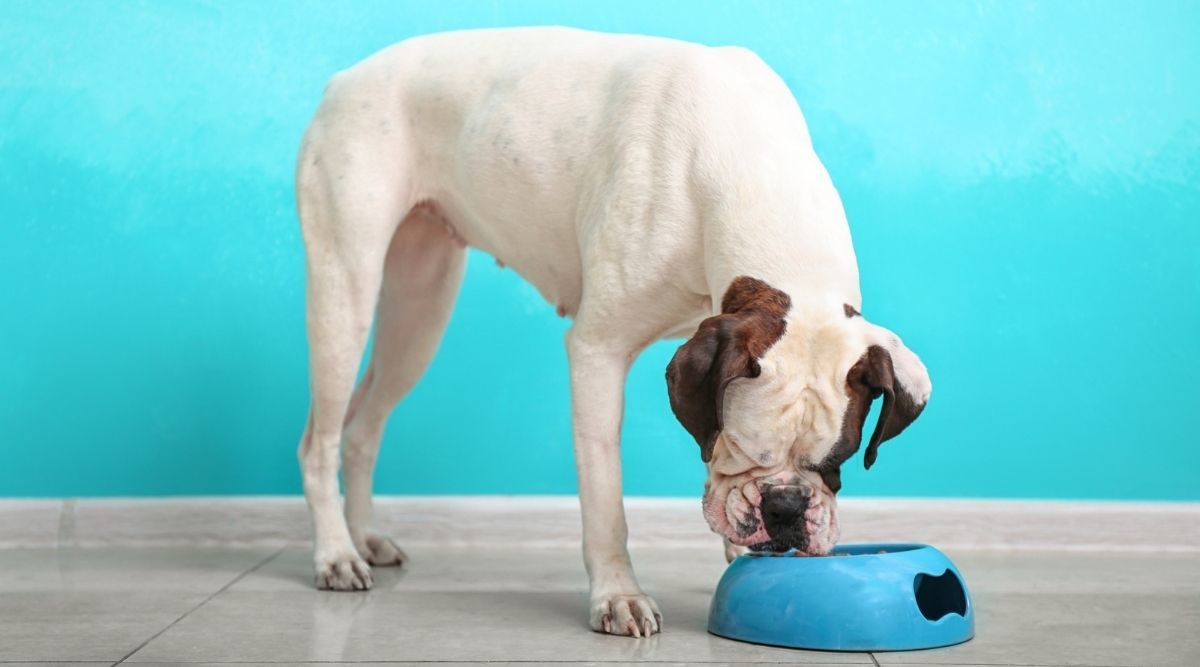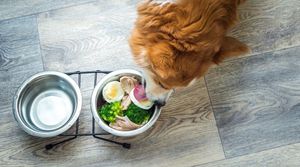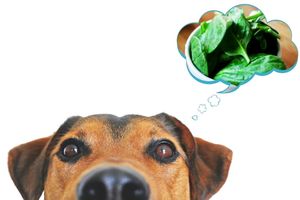As is the case for their human friends, dogs can develop food allergies that cause all kinds of problems. Boxer dogs, with their short, wiry coat and muscular build, are not an exception to this, with some food allergens causing problems more frequently than seen in other, similar breeds.
Here we are going to take both a closer look at the most common food allergens for boxers, the health issues they can cause and the best foods to offer your boxer pup to keep them at bay.
Boxer Dogs and Allergies
One of the instantly recognizable traits in boxer dogs - apart from their boundless energy and cunning intelligence - is their short, close coat. When that coat is in the best possible condition, it looks magnificent. However, boxers are known to be genetically predisposed to skin allergies, which, when they appear, can ruin the look of that shiny fur. They can also lead to frustration and irritation for your normally happy-go-lucky pup.
These skin allergies can be caused by environmental factors, but more often they are caused by, or worsened by, a food allergy. As boxers are also genetically predisposed to non-allergen related skin conditions - more on those in a moment - if you can minimize her discomfort by doing your best to ensure her food is not contributing negatively to their skin and coat health, then that can only be a good thing.
Boxer Dog Skin Diseases
All dog breeds can develop skin diseases, but as we've mentioned, boxers are particularly prone to them.
In boxers - as well as other similar breeds like French Bulldogs - a non allergy related skin condition called seasonal flank alopecia is common. Seasonal flank alopecia is most commonly seen in the colder, winter months. Affected dogs lose hair patches without showing any other signs of skin disease. Seasonal flank alopecia usually develops in early maturity and lasts for the duration of the dog's life.
Why this condition develops isn't clear, but experts surmise that it appears to have a genetic component in boxer dogs and is caused by an aberrant reaction of the hair follicles to the usual hormonal changes that occur with the decreasing day length that accompanies the fall and winter seasons.
As unsightly as it can be, there is no real active treatment available for seasonal alopecia in boxer dogs. That does not mean, however, that you should ignore it, as the signs of seasonal alopecia are easy to mistake for skin allergies and other skin diseases that can have more serious health consequences for your pup.
If left untreated, yeast and microbial skin infections caused by skin allergies can have a detrimental effect on your Boxer's overall health, and can lead to more serious bacterial illnesses. This means that even if you think your boxer's hair loss is the result of seasonal flank alopecia, you should have that confirmed by a vet.
Most Common Food Allergens for Boxers

Technically, dogs can develop allergies to any food ingredient, but some research and extensive anecdotal evidence seems to suggest that boxers are more sensitive to beef, chicken, soy and wheat. There is a common misconception that wheat is the most common food allergen for dogs, but that is not the case. However, some pups, including some boxers, are sensitive to it.
It should be noted that boxer dogs can sometimes suddenly develop allergies to food that they have previously eaten without a problem. Again, the reasons for this are not clear, but it often occurs as boxer dogs age.
Food Allergy Symptoms in Boxer Dogs
How can you tell if your boxer is suffering from food allergies? The symptoms and signs of food allergies are similar to those of environmental allergies, and can include any of the following:
Symptoms that are frequently diagnosed as allergies in Boxers include:
- Continual scratching and itchy skin
- Skin that is red, scaly, or flaky
- Nose that is dry, cracked, or crusty
- Chins that are inflamed and bleeding (also known as "boxer acne").
- Hair thinning
- Itchy or swollen ears
- Visible tear streaks, constantly red eyes, and gunky eye discharge
- Hives obstructing anal glands and causing repeated UTIs
- Diarrhea, vomiting, and other stomach problems
Some of these symptoms can become a serious threat to your boxer pup's health, which is why they should never be ignored, and you should consult with your vet as soon as they begin to appear.
How To Determine Food Allergies in Boxers
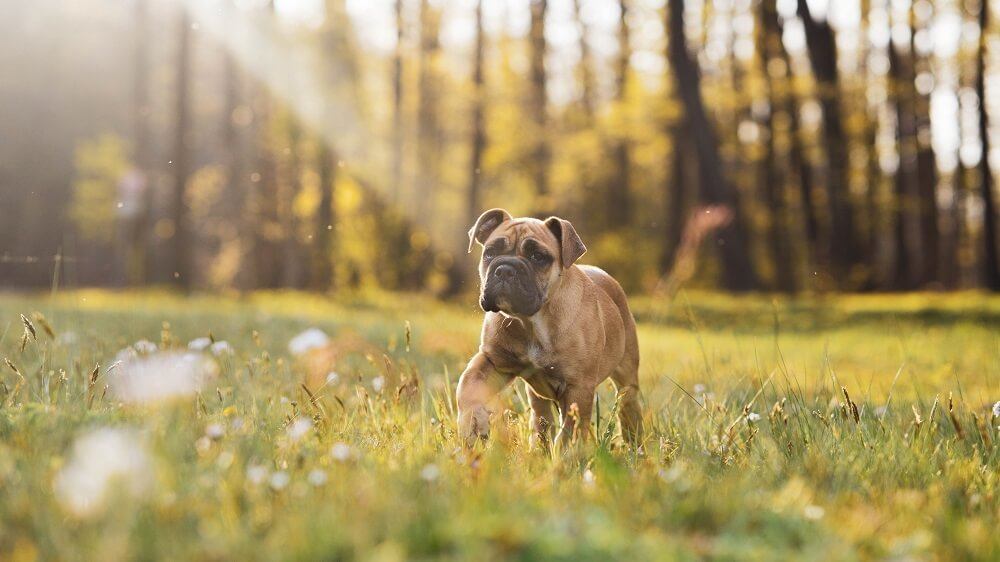
Photo by Anna Dudkova on Unsplash
The most accurate way to diagnose food allergies is to follow a hypoallergenic diet for eight to twelve weeks as part of a food trial known as an elimination trial.
This particular diet must not contain any substances that your pet has eaten since the allergy symptoms began in order to be an accurate elimination trial for your dog. During this trial period, no other food, treats, or supplements, are allowed to be consumed.
There are also special blood tests that can determine whether your dog is allergic to certain foods. These tests are known as serum IgE testing, and your vet will evaluate whether they can help diagnose your pet's problem
Dog Food Allergy Treatments
Allergies themselves can usually only be treated by eliminating the substances/foods that seem to be causing them, although in the case of environmental allergies occasionally antihistamines are prescribed. However, it may be that your pup will need to be treated for the problems that the allergies have caused.
In the case of skin allergies you do need to be careful when making use of OTC skin treatments, as boxers may very well lick off anything applied to their skin/fur topically, and as they don't have much of it - compared to many other dogs anyway - if a substance is even mildly toxic to them the results can be disastrous for their overall health.
In the case of skin infections, antibiotics will be prescribed to clear the infection and if the infection is yeast based antifungal medications may be prescribed as well. To help with soreness, redness and other similar issues, Sulfodene 3-Way Ointment for Dogs is an effective OTC preparation that can be very helpful and does not contain ingredients that could be harmful to your pup.
Sulfodene Wound Care Ointment
What to Feed a Boxer With Food Allergies?
If your boxer pup is determined to have food allergies, then the one course of 'treatment' that will be a must is changing his food so that dinnertime is safe and enjoyable again. This is where things can become complicated, as there are so many feeding options available right now!
The obvious thing you'll need to avoid are the ingredients that seem to be the cause of the skin allergies, as determined by the elimination diet we mentioned earlier. Some vets may make a specific food recommendation based on their observations and testing of your pet, although that might not always be the case.
As boxers can be very picky when it comes to taste - due in large part, it's assumed, to their very acute sense of smell - finding a healthy food that they will eat on a daily basis that is free of the ingredients they are allergic too, but will also keep them healthy can be a challenge!
Here though is a look at some excellent options to consider:
Veterinary Dog Food Brands For Boxer Dogs with Skin Allergies
Vets do have their personal preferences when it comes to brands they recommend for their patients, but when it comes to food allergies, one of the most commonly vet recommended foods is the Hill's Science Diet. Hill's Science Diet Dry Dog Food, Sensitive Stomach & Skin is formulated to provide optimal nutrition, but also adds additional ingredients for skin health.
Another highly recommended option is the Royal Canin Boxer Adult Breed Specific Dry Dog Food, which is specially formulated for a boxer's muscular body composition, high energy that calls for more calories, and skin loving omega 3 fatty acids to improve general coat health.
Fresh Dog Food For Boxer Dogs with Skin Allergies
Not all boxer dogs enjoy a dry dog food diet, and if it turns out that your boxer pup is allergic to chicken, it can be very hard to find a vet recommended dog food that does not feature this poultry as a first ingredient.
Fresh dog food is a very trendy feeding option at the moment, but trends aside, it can also be a very nutritious option for a boxer dog with food allergies.
One of the best choices you can make is to choose one of the four Ollie fresh dog food offerings. There are four flavor options: beef, chicken, turkey and lamb, so there should be an available protein that will not trigger food allergies in your pup. The food itself is made using 'human grade' fresh ingredients and does not make use of artificial colors or dyes (which can also be allergy triggers for some boxers.)
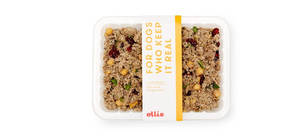
Hydrolyzed Protein Dog Food For Boxer Dogs with Skin Allergies
Hydrolysis is a process that makes use of water to break down various proteins into elements that are so small that they will not trigger an immune system response, so a hydrolyzed protein dog food may also be suitable for an allergy prone boxer.
Hill's Prescription Diet z/D Skin/Food Sensitivities Dog Food is a commonly vet recommended hydrolyzed protein dog food that suits lots of food allergy prone boxer dogs, and while it is also only available with chicken as the primary protein most chicken sensitive pups can consume it safely, which is useful if your picky boxer's favorite food is chicken, and it proves hard to interest him in anything else!
Home Cooked Dog Food For Boxer Dogs with Skin Allergies
Possibly the best way to control exactly what your boxer dog eats, and avoid any ingredients he is allergic or sensitive to, is to cook her food at home yourself. This can be an option that is far too time-consuming for many busy pet parents, but if you do have the time - and food can be prepared in advance and then frozen in many cases, then there are some great food allergy friendly recipes available that you can try out.

